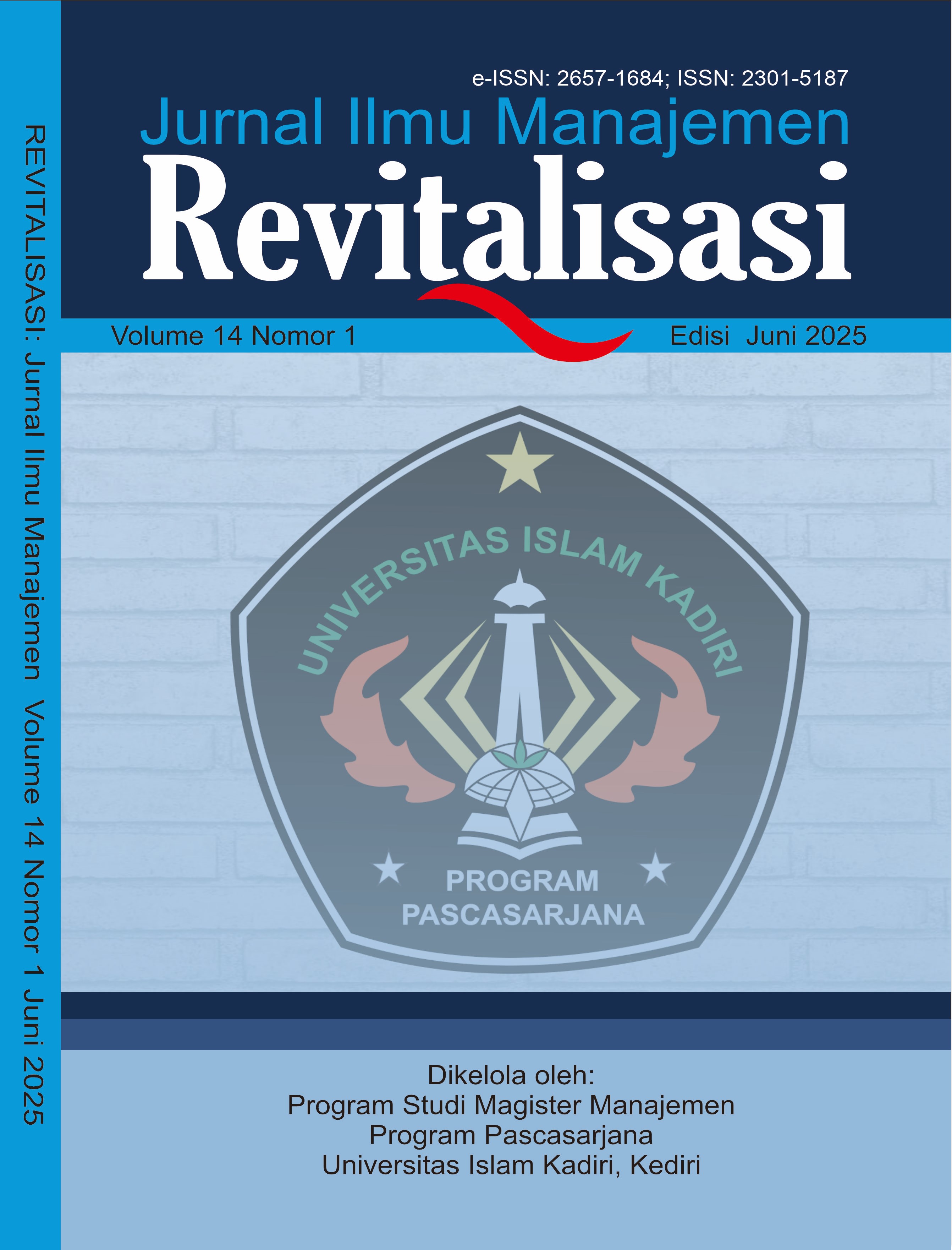Pengaruh Kepuasan Kerja Terhadap Intensi Turnover Dimediasi Oleh Quiet Quitting Pada Karyawan
Abstract
This research is titled "Job Satisfaction towards Turnover Intention Mediated by Quiet Quitting of Generation Z Employees in East Java Companies". The main focus of this research is to analyze the relationship between job satisfaction, quiet quitting, and turnover intention among Generation Z employees. Generation Z, known for having unique characteristics and a demand for work-life balance, tends to engage in quiet quitting, which is reducing involvement in work without formally resigning. Through interviews and data analysis, this study found that job satisfaction has a significant negative influence on turnover intention. Furthermore, quiet quitting acts as a mediator that strengthens the relationship between job satisfaction and turnover intention. This research provides insights for companies to understand the dynamics of Generation Z employees and emphasizes the importance of creating a supportive work environment to increase job satisfaction and reduce turnover rates. The results of this study are expected to be a reference for companies in formulating more effective human resource management strategies.
Keywords: job satisfaction, turnover intention, quiet quitting, work life balance, dan human resources management
References
Galanis, P., Moisoglou, I., Malliarou, M., Papathanasiou, I. V., Katsiroumpa, A., Vraka, I., Siskou, O., Konstantakopoulou, O., & Kaitelidou, D. (2024). Quiet Quitting among Nurses Increases Their Turnover Intention: Evidence from Greece in the Post-COVID-19 Era. Healthcare (Switzerland), 12(1), 1–11. https://doi.org/10.3390/healthcare12010079
Hair, J. F., Risher, J. J., Sarstedt, M., & Ringle, C. M. (2019). When to use and how to report the results of PLS-SEM. European Business Review, 31(1), 2–24. https://doi.org/10.1108/EBR-11-2018-0203
Lee, M., & Kim, B. (2023). Effect of Employee Experience on Organizational Commitment: Case of South Korea. Behavioral Sciences, 13(7). https://doi.org/10.3390/bs13070521
Maharani, A., & Tamara, D. (2024). The occupational stress and work-life balance on turnover intentions with job satisfaction as mediating. SA Journal of Human Resource Management, 22, 1–10. https://doi.org/10.4102/sajhrm.v22i0.2369
Masykuroh, N. L., & Muafi, M. (2021). The influence of job insecurity and person-job fit on turnover intention mediated by job satisfaction. International Journal of Business Ecosystem & Strategy (2687-2293), 3(3), 01–12. https://doi.org/10.36096/ijbes.v3i3.271
Racolţa-Paina, N. D., & Irini, R. D. (2021). Generation z in the workplace through the lenses of human resource professionals – a qualitative study. Quality - Access to Success, 22(183), 78–85.
Ramlawati, R., Trisnawati, E., Yasin, N. A., & Kurniawaty, K. (2021). External alternatives, job stress on job satisfaction and employee turnover intention. Management Science Letters, 11, 511–518. https://doi.org/10.5267/j.msl.2020.9.016
Sugiyono. (2014). Metodologi Penelitian Kuantitatif, Kualitatif dan R & D.
Xueyun, Z., Al Mamun, A., Yang, Q., Naznen, F., & Ali, M. H. (2024). Modeling quiet quitting intention among academics: Mediating effect of work addiction and satisfaction. Journal of Workplace Behavioral Health, 0(0), 1–37. https://doi.org/10.1080/15555240.2024.2323636

This work is licensed under a Creative Commons Attribution 4.0 International License.
 This work is licensed under a Creative Commons Attribution 4.0 International License
This work is licensed under a Creative Commons Attribution 4.0 International License




















